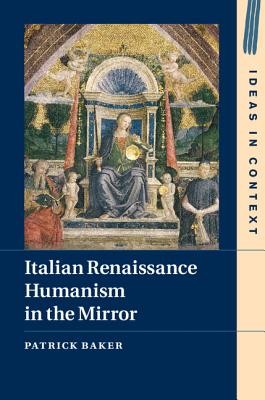
- We will send in 10–14 business days.
- Author: Patrick Baker
- Publisher: Cambridge University Press
- ISBN-10: 1107111862
- ISBN-13: 9781107111868
- Format: 15.6 x 23.7 x 2.6 cm, kieti viršeliai
- Language: English
- SAVE -10% with code: EXTRA
Reviews
Description
This important study takes a new approach to understanding Italian Renaissance humanism, based not on scholarly paradigms or philosophical concepts but on a neglected yet indispensable perspective: the humanists' understanding of themselves. Through a series of close textual studies, Patrick Baker excavates what humanists thought was important about humanism, how they viewed their own history, what goals they enunciated, what triumphs they celebrated - in short, he attempts to reconstruct humanist identity. What emerges is a small, coherent community dedicated primarily not to political ideology, a philosophy of man, an educational ethos, or moral improvement, but rather to the pursuit of classical Latin eloquence. Grasping the significance this stylistic ideal had for the humanists is essential to understanding both their sense of themselves and the importance they and others attached to their movement. For eloquence was no mere aesthetic affair but rather appeared to them as the guarantor of civilisation itself.
EXTRA 10 % discount with code: EXTRA
The promotion ends in 21d.06:49:54
The discount code is valid when purchasing from 10 €. Discounts do not stack.
- Author: Patrick Baker
- Publisher: Cambridge University Press
- ISBN-10: 1107111862
- ISBN-13: 9781107111868
- Format: 15.6 x 23.7 x 2.6 cm, kieti viršeliai
- Language: English English
This important study takes a new approach to understanding Italian Renaissance humanism, based not on scholarly paradigms or philosophical concepts but on a neglected yet indispensable perspective: the humanists' understanding of themselves. Through a series of close textual studies, Patrick Baker excavates what humanists thought was important about humanism, how they viewed their own history, what goals they enunciated, what triumphs they celebrated - in short, he attempts to reconstruct humanist identity. What emerges is a small, coherent community dedicated primarily not to political ideology, a philosophy of man, an educational ethos, or moral improvement, but rather to the pursuit of classical Latin eloquence. Grasping the significance this stylistic ideal had for the humanists is essential to understanding both their sense of themselves and the importance they and others attached to their movement. For eloquence was no mere aesthetic affair but rather appeared to them as the guarantor of civilisation itself.


Reviews